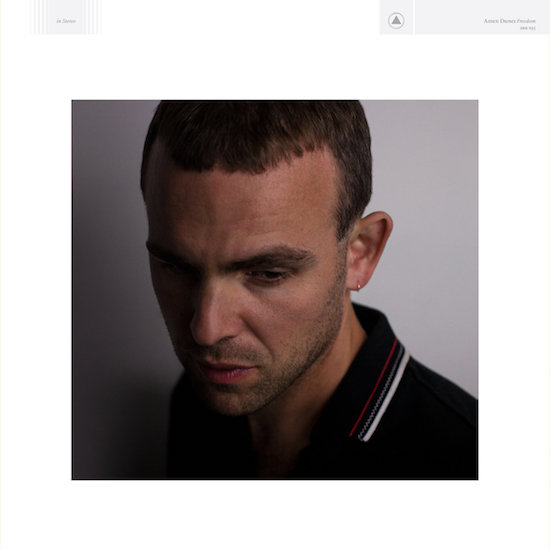“An American is a complex of occasions,” goes the line by Charles Olson in ‘Maximus to Gloucester, Letter 27 [withheld]’, a poem in which the author recalls fraught childhood memories and confronts some challenging geo-cultural questions of nationhood and selfhood.
Damon McMahon, on this fifth album as Amen Dunes, is an American complex of occasions in the Olson sense, both personal and social, dealing with parents, grief, and his difficult upbringing. Alongside this he examines various corners of popular culture.
McMahon’s 2011 album, Through Donkey Jaw, remains one of my favourite albums of this decade. That was a simmering stew of marvellously distorted guitar-based noise, with a sublime songwriting talent lurking underneath the muddy production. 2014’s Love saw his songs take on more conventional structures, and was an impassioned meditation on isolation and failure. Freedom is something else again, and represents the apogee of his beautifully unrefined aesthetic. In its balance between self-interrogation and sociopolitical awareness, Amen Dunes rivals even Cass McCombs as the contemporary bard of conscious and poetic lo-fi rock.
McMahon’s mother was diagnosed with terminal cancer as he embarked on the recording of Freedom, and this infuses a number the most affecting songs. Chief among these is ‘Believe’, a mid-tempo, folk-ish ballad that takes a cosmic view of his mother’s mortality, encapsulated by the startling perspective shown with lines such as “Life goes on and this is just a song / But I do it for you.” McMahon’s approach to grief seems to have a wider lens than most.
‘Blue Rose’ and ‘Calling Paul the Suffering’ are both about his father: “If you want war / Then you’ve got war with me,” he sings on the former. ‘Skipping School’ tells of an adolescence spent among glue sniffers. All three retain the Amen Dunes staple of a sustained hum of synthesizer over which his foggy guitar tones meander.
Freedom gets most interesting, though, with ‘Miki Dora’, which must count among McMahon’s greatest moments. The track keeps up an unchanging and unflashy guitar refrain as McMahon plays with and stretches the momentum and energy with an astonishing vocal performance that alternates between exaggeration and restraint (also a trick performed in the fevered, brilliant ‘Time’). It suggests all of the Velvet Underground, Neil Young and McCombs. Miki Dora was a Hungary-born Californian surfer who, as well as being a master of the waves in the 1960s, was a financial crook known for painting swastikas on his surfboards.A perfect figure for McMahon to build an ethically complicated and ultimately incredible song around. Dora is another of the album’s bittersweet father figures, perhaps.
A rather better-known cultural touchstone is invoked on ‘Dracula’; in combination with Miki Dora, an imperfect father, a terribly ill mother and drug-addled youths, it all leads to a very American complex of occasions. McMahon examines masculinity, vulnerability and how cultural consumption converges with personal demons, and it has resulted in an album of immense integrity, defiance and beauty.


